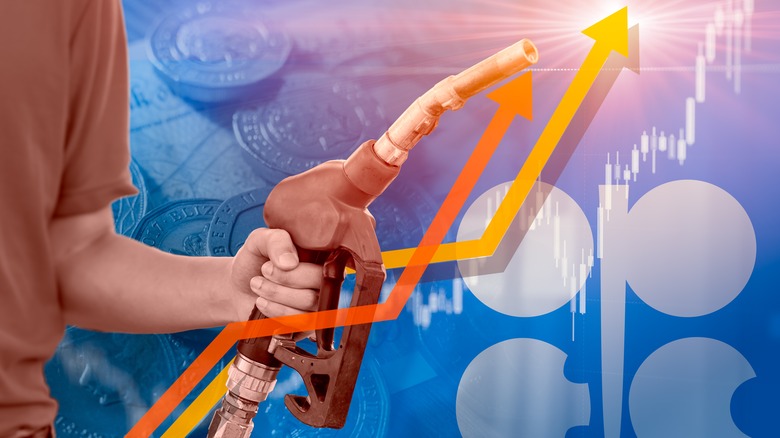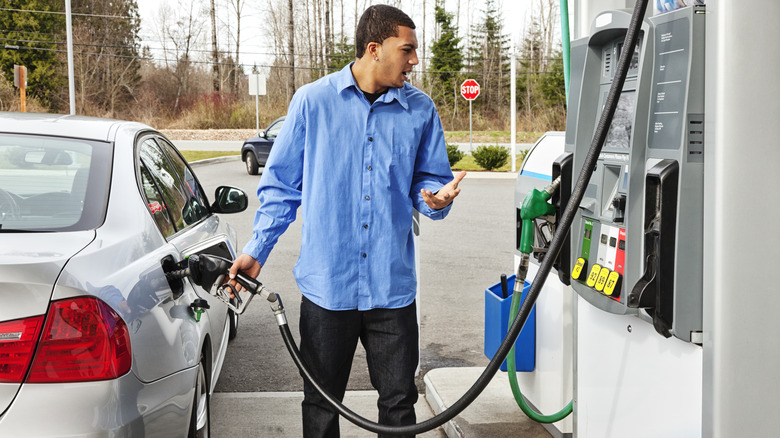Gas Prices Are Going Up: Here's Why It's Happening Now
Following a reprieve during the first half of 2023, U.S. consumers are once again facing rising gasoline costs. According to the roadside assistance company AAA, the average nationwide price for a gallon of regular unleaded gas is $3.73 as of Friday, which is the highest since last November and approximately 20 cents higher than just one month prior. If it's any consolation to drivers, gas prices are still considerably lower than they were at the same point last year (when a gallon of unleaded averaged $4.30). But it's not unfathomable that we could revisit that level again if certain trends continue.
Clearly, the price of gasoline is closely correlated to the price of the crude oil from which it's refined, which has risen sharply in recent weeks as a result of production cuts by OPEC nations as well as disruptions at U.S. refineries, which have been blamed on the recent bout of intense summer heat. OPEC+, which represents the Organization of Petroleum Exporting Countries and its allies —including Russia — announced on July 1 that production would be reduced to 3.6 million barrels of crude oil per day in an effort to bolster sagging oil prices, which are impacting the profitability of those nations. Saudi Arabia, another significant oil producer, recently publicized a similar cutback.
Hurricane season threatens U.S. oil production
For the past few years, consumers have been battling price inflation in all sorts of goods and services resulting from supply chain disruptions and monetary policies caused by the COVID-19 pandemic. Falling energy prices have helped slow the pace of that inflation in recent months, so a prolonged uptick in gasoline prices would most certainly represent an unwelcome strain on U.S. consumers at a time when inflation is just starting to normalize.
The next few months represent a vulnerable period for oil supply as the United States enters peak hurricane season, which according to the National Hurricane Center lasts from mid-August through mid-October. Approaching storms can pose a threat to the significant number of oil production platforms located in the Gulf of Mexico, requiring those sites to be temporarily shut down or potentially even damaged by hurricanes. Additionally, this can impact the ports and pipelines that transport the crude.
For its part, the Biden administration is trying to coax drivers from gasoline-powered to battery-powered vehicles via financial incentives created by its Inflation Reduction Act, but so far, the transition has been gradual and not without certain stumbling blocks.

